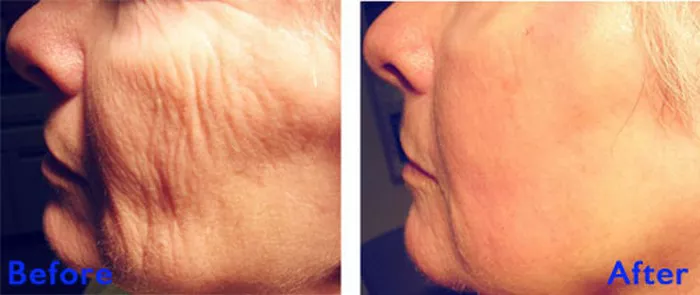Under eye wrinkles are a common concern for many people, and there are several factors that can contribute to their development. One of the most commonly cited causes of under eye wrinkles is a lack of sleep. In this article, we will explore the topic of whether a lack of sleep can cause under eye wrinkles.
Understanding Under Eye Wrinkles
Under eye wrinkles are fine lines and wrinkles that develop around the eyes as a result of aging, sun exposure, and other factors. These wrinkles can be caused by a loss of collagen and elastin in the skin, as well as repeated facial expressions and movements such as squinting or smiling. Under eye wrinkles can also be caused by lifestyle factors such as smoking, poor diet, and lack of sleep.
How Lack of Sleep Affects the Skin
Lack of sleep can have a negative impact on the skin, including the development of under eye wrinkles. When we sleep, our bodies go through a process of repairing and regenerating damaged cells, including skin cells. Without enough sleep, this process is disrupted, leading to a breakdown in collagen and elastin in the skin. This can result in the development of fine lines and wrinkles, including under eye wrinkles.
The Role of Cortisol
Another way that lack of sleep can contribute to under eye wrinkles is through the production of cortisol, a stress hormone. When we are sleep deprived, our bodies produce more cortisol, which can cause inflammation and damage to the skin. Inflammation can break down collagen and elastin in the skin, leading to the development of wrinkles and other signs of aging.
Dehydration and Under Eye Wrinkles
Lack of sleep can also contribute to dehydration, which can further exacerbate the development of under eye wrinkles. When we are sleep deprived, our bodies produce less of the hormone that regulates fluid balance, leading to dehydration. Dehydration can cause the skin to appear dry and dull, making wrinkles and fine lines more noticeable.
Preventing Under Eye Wrinkles
While lack of sleep can contribute to the development of under eye wrinkles, there are steps that can be taken to prevent and reduce their appearance. One of the most important steps is to ensure that you are getting enough sleep each night. Most adults require 7-9 hours of sleep each night to function optimally. Additionally, it is important to stay hydrated by drinking plenty of water and avoiding alcohol and caffeine.
Skincare Tips for Under Eye Wrinkles
In addition to getting enough sleep and staying hydrated, there are several skincare tips that can help prevent and reduce the appearance of under eye wrinkles. One of the most important steps is to use a high-quality moisturizer that is specifically designed for the delicate skin around the eyes. Additionally, it is important to wear sunglasses and avoid squinting in bright sunlight, as this can contribute to the development of wrinkles.
Medical Treatments for Under Eye Wrinkles
For those who are concerned about the appearance of under eye wrinkles, there are several medical treatments that can be effective. One option is Botox, which is a type of injectable treatment that can help reduce the appearance of wrinkles by relaxing the muscles that cause them. Other options include dermal fillers, which can add volume to the skin and reduce the appearance of wrinkles, and laser resurfacing, which can stimulate collagen production and improve skin texture.
Lifestyle Changes for Better Sleep
If lack of sleep is contributing to the development of under eye wrinkles, there are several lifestyle changes that can be made to improve sleep quality. One of the most important steps is to establish a consistent sleep schedule, going to bed and waking up at the same time each day. Additionally, it is important to create a relaxing sleep environment, with a comfortable mattress and pillows, and to avoid stimulating activities such as watching TV or using electronic devices in the bedroom.
Other Benefits of Good Sleep
In addition to preventing under eye wrinkles, getting enough sleep has many other benefits for overall health and wellbeing. Good sleep can improve cognitive function, mood, and immune function, and can reduce the risk of chronic diseases such as obesity, diabetes, and cardiovascular disease. By prioritizing good sleep habits, it is possible to improve overall health and reduce the risk of many health problems.
Conclusion
Under eye wrinkles are a common concern for many people, and a lack of sleep can contribute to their development. When we are sleep deprived, our bodies produce less collagen and elastin, leading to the development of fine lines and wrinkles. Additionally, lack of sleep can cause inflammation and dehydration, which can further exacerbate the appearance of under eye wrinkles. By getting enough sleep, staying hydrated, and taking care of your skin, it is possible to prevent and reduce the appearance of under eye wrinkles. For those who are concerned about the appearance of under eye wrinkles, there are several medical treatments that can be effective in reducing their appearance. By prioritizing good sleep habits, it is possible to improve overall health and reduce the risk of many health problems.


